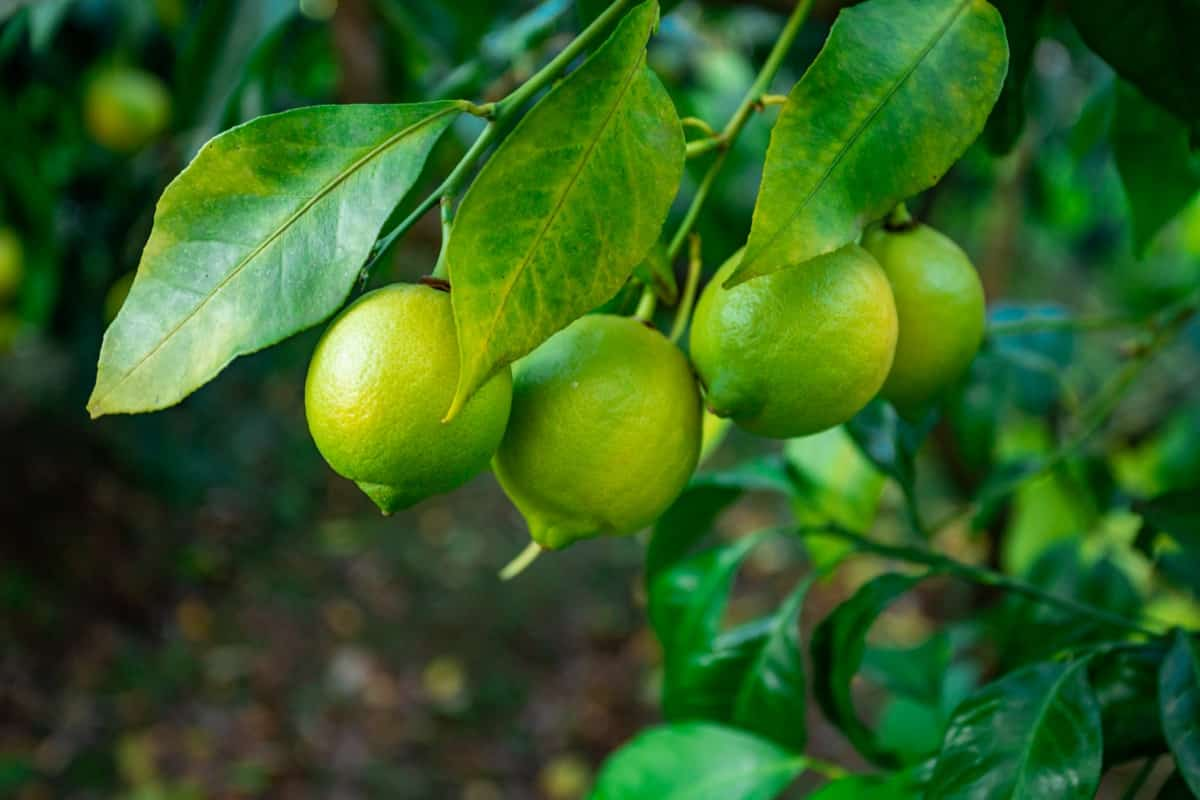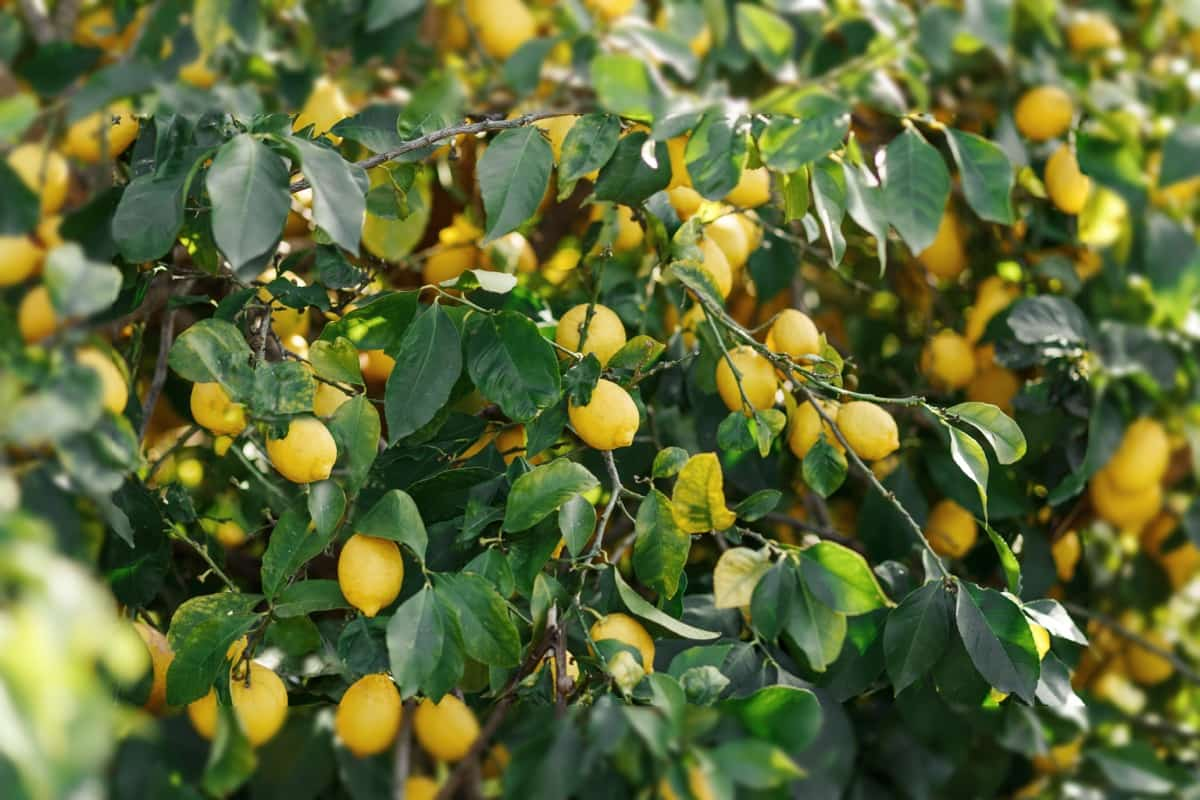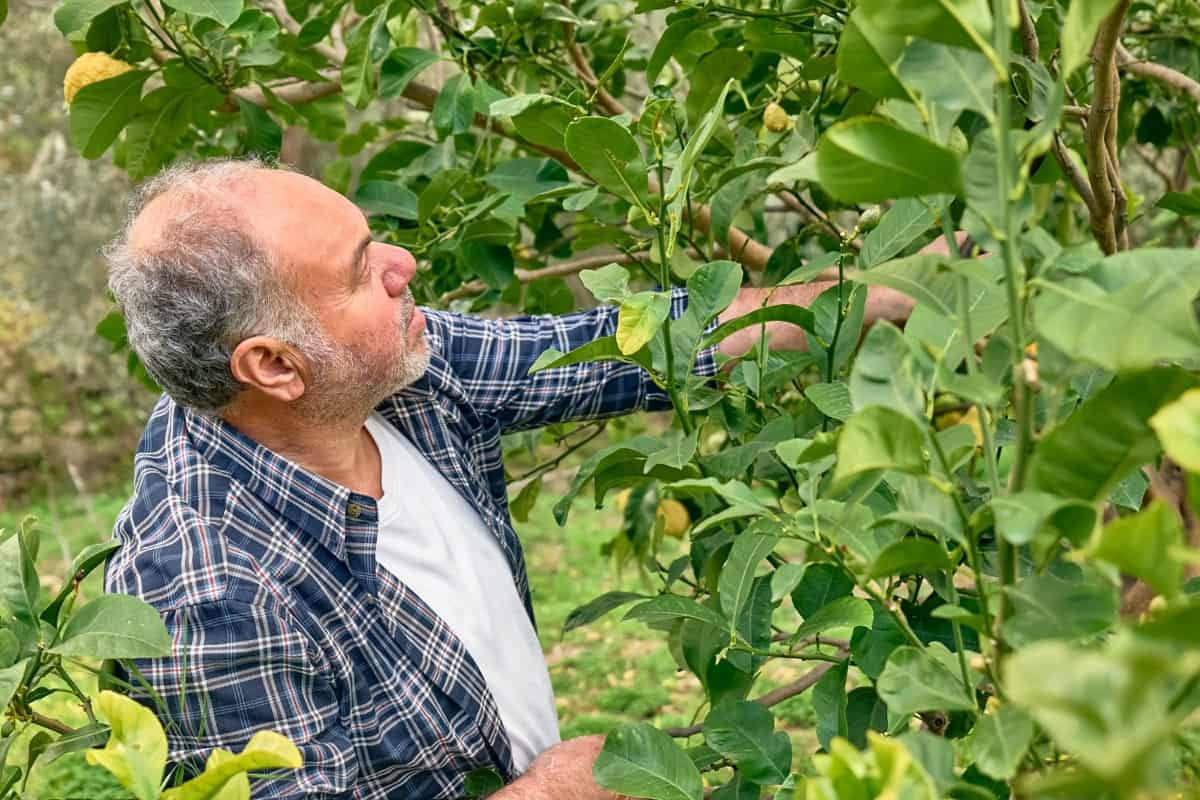Lemon trees are a beautiful addition to any garden or yard, but they can be susceptible to leaf curl, a condition that causes the leaves to curl and become distorted. Leaf curl can be caused by various factors, including fungal infections, pests, and nutrient deficiencies. While chemical treatments are available, many people prefer to use natural and organic remedies to treat leaf curl in their lemon trees. In this document, we will explore natural and organic ways to treat lemon tree leaf curl without the use of harsh chemicals.

Natural and Organic Ways to Treat Lemon Tree Leaf Curl
Causes of Leaf Curl In Lemon Trees
- Extreme temperatures, which may be hot and cold, can lead to leaf curl. Exposure to strong winds and frost can also contribute to this problem. Additionally, insufficient or excessive sunlight can cause stress to the tree, resulting in leaf curl.
- Several pests can attack lemon trees and cause leaf curl. Aphids, mites, and scale insects are common culprits. These pests suck the leave’s sap, resulting in curl and distortion.
- Lemon trees are prone to fungal and bacterial infections, which can lead to leaf curl. Diseases like citrus canker and citrus greening can cause the leaves to curl and develop yellow or brown spots.
- Excessive amounts of certain nutrients, such as phosphorus, can also lead to leaf curl.
Organic Remedies for Lemon Tree Leaf Curl
Epsom salt is a great magnesium source, essential for healthy plant growth. Dissolve 2 tablespoons Epsom salt in 4 liters of water and apply it to the lemon tree’s foliage and soil. This remedy can help correct nutrient deficiencies and improve the tree’s resilience.
In addition to using organic remedies, it is crucial to ensure proper cultural practices to prevent and manage leaf curl. Provide adequate sunlight, water, and nutrients to your lemon tree. Avoid overwatering, as excessive moisture can contribute to leaf curl. Prune the diseased branches and dispose of them to prevent the spread of the disease.
Effective Home Remedies for Lemon Tree Leaf Curl
Garlic Spray: Garlic has natural insect-repelling properties, making it an effective organic remedy for controlling pests that may contribute to leaf curl. Blend a few garlic cloves with water, strain the mixture, and spray it onto the affected leaves. Repeat this process every two weeks to deter pests and promote healthier foliage.
Baking Soda Solution: Baking soda is known for its antifungal properties and can be used to control leaf curl disease. Mix 1 tablespoon baking soda with 1 gallon of water and spray it on the affected leaves. Make sure to cover both sides of the leaves. Repeat this process every 10 days until the symptoms subside.
Preventing and Treating Lemon Tree Leaf Curl Organically
Prevention is always better than cure for leaf curls in lemon trees. Here are some effective organic practices to keep your lemon tree healthy and minimize the chances of leaf curl
Proper Watering: Lemon trees require consistent watering, but overwatering can cause root rot and leaf curl. Water the tree deeply and infrequently, allowing the soil to dry out between waterings. Avoid wetting the leaves while watering.
Adequate Sunlight: Lemon trees thrive in full sunlight. Ensure your tree receives at least 6-8 hours of direct sunlight daily. Lack of sunlight can weaken the tree, making it more susceptible to leaf curl.
Well-Draining Soil: Lemon trees prefer well-draining soil to prevent soggy roots. If your soil retains too much water, consider amending it with organic matter such as compost or well-rotted manure to improve drainage.
Proper Pruning: Regular pruning helps maintain good air circulation and sunlight penetration in the canopy, reducing the risk of fungal infections that cause leaf curl. Remove any dead or diseased branches promptly.
Balanced Nutrition: Provide your lemon tree with balanced organic fertilizers to promote healthy growth. A lack of essential nutrients can weaken the tree and make it more susceptible to leaf curl. Consult a local nursery or an agricultural extension office for guidance on suitable organic fertilizers for lemon trees.
Eco-friendly Solutions for Leaf Curl in Lemon Trees
Applying an organic mulch around the tree’s base helps conserve moisture, regulate soil temperature, and suppress weed growth. Mulch also improves soil structure and promotes beneficial microbial activity, which enhances the tree’s overall health. Use wood chips, straw, or compost materials, and avoid piling the mulch around the tree trunk to prevent rot.
In case you missed it: How to Increase Female Flowers in Lemon: Explained in 10 Simple Steps

Regular pruning is essential for maintaining the shape and health of lemon trees. Remove dead, damaged, or diseased branches, which can attract pests and contribute to leaf curl. Additionally, thin out overcrowded branches to improve air circulation and sunlight penetration, which reduces humidity and minimizes the risk of leaf curl.
Certain pests, like aphids and mites, can cause leaf curl in lemon trees. Instead of relying on chemical pesticides, opt for eco-friendly alternatives. Introduce beneficial insects like ladybugs or lacewings to the garden, as they prey on these pests. Alternatively, use organic insecticidal soaps or neem oil sprays, which are effective against various pests without harming the environment or beneficial insects.
Herbal Remedies for Treating Lemon Tree Leaf Curl
Chamomile tea can act as a natural fungicide and help treat leaf curls caused by fungal infections. Brew a strong chamomile tea by steeping chamomile flowers in hot water for 15 minutes. Allow this tea to cool down, and then strain it. Spray the chamomile tea onto the affected leaves, ensuring thorough coverage. Repeat this treatment every two weeks until the condition improves.
Non-toxic Methods to Control Leaf Curl in Lemon Trees
Nutrient management: Providing the lemon tree with the right balance of nutrients is crucial for its overall health and resilience against leaf curl. Conduct a soil test to determine any nutrient deficiencies and amend the soil accordingly. Use organic fertilizers or compost to release nutrients to the tree slowly. Avoid using nitrogen-based fertilizers, which can promote excessive leaf growth and make the tree more susceptible to leaf curl.
Disease-resistant varieties: When planting new lemon trees, consider choosing disease-resistant varieties less prone to leaf curl. These varieties have been bred to have a natural resistance against the pathogens that cause leaf curl. Consult with local nurseries or agricultural extension services to find the best disease-resistant lemon tree varieties for your specific region.
Environmentally Friendly Approaches to Combat Lemon Tree Leaf Curl
- Proper Spacing: Planting lemon trees at recommended distances allows for better airflow and reduces humidity, preventing the spread of fungal spores.
- Sanitation: Properly disposing of fallen leaves and removing any infected plant debris can help prevent the spread and recurrence of leaf curl. Regularly cleaning and disinfecting pruning tools can also minimize the risk of transmission.
- Copper-Based Fungicides: Copper compounds, such as copper sulfate or copper hydroxide, have proven effective against Taphrina deformans. However, they should be used sparingly and strictly according to label instructions to prevent copper accumulation in the soil.
- Bacillus Subtilis: This beneficial bacterium can inhibit the growth of fungal pathogens, including Taphrina deformans. Applying Bacillus subtilis-based products can help prevent and manage leaf curl.
In case you missed it: Project Report of 1-Acre Sweet Lemon/Mosambi Farming: Cost and Profit Analysis

Conclusion
Following these natural and organic remedies can effectively treat lemon tree leaf curls and restore your tree’s health. Remember to be patient, as the tree may take some time to recover. With proper care, your lemon tree will soon flourish again, producing delicious fruits to enjoy.
- Feed Your Flock for Less: Top 10 Tips to Save on Chicken Feed
- Ultimate Guide to Ossabaw Island Hog: Breeding, Raising, Diet, and Care
- Hatching Answers: The Top 10 Reasons Your Chickens Aren’t Laying Eggs
- Eggs and Economics: Breaking Down the Cost of Raising Backyard Chickens
- Defend Your Greens: Proven Methods to Keep Iguanas Out of Your Garden
- Ultimate Guide to Cinnamon Queen Chicken: A Comprehensive Guide for Beginners
- Ultimate Guide to California Tan Chicken: Breeding, Raising, Diet, Egg-Production and Care
- Ultimate Guide to Marsh Daisy Chicken: Breeding, Raising, Diet, and Care
- 10 Types of Chicken Farming Businesses You Can Start for Profits